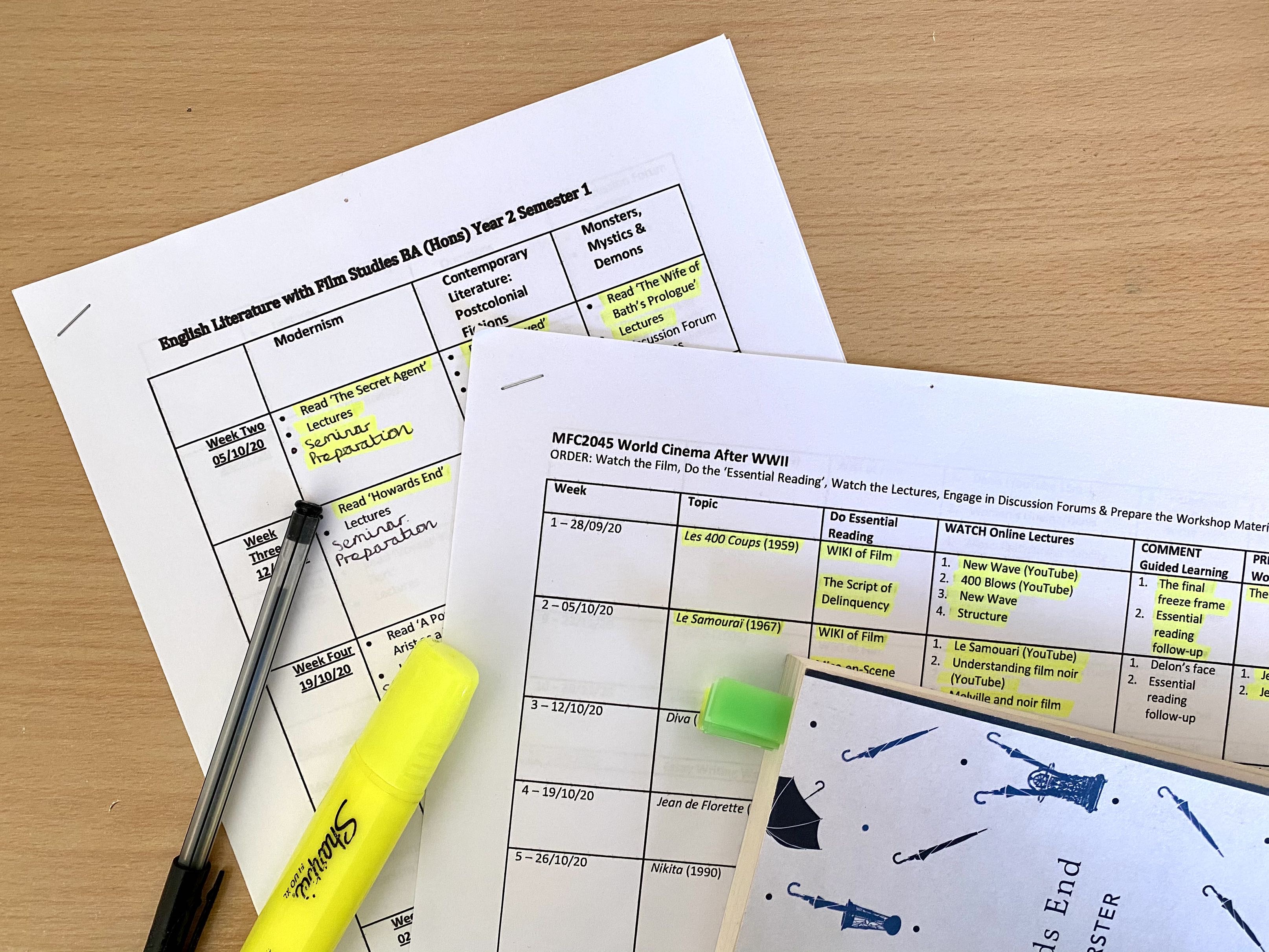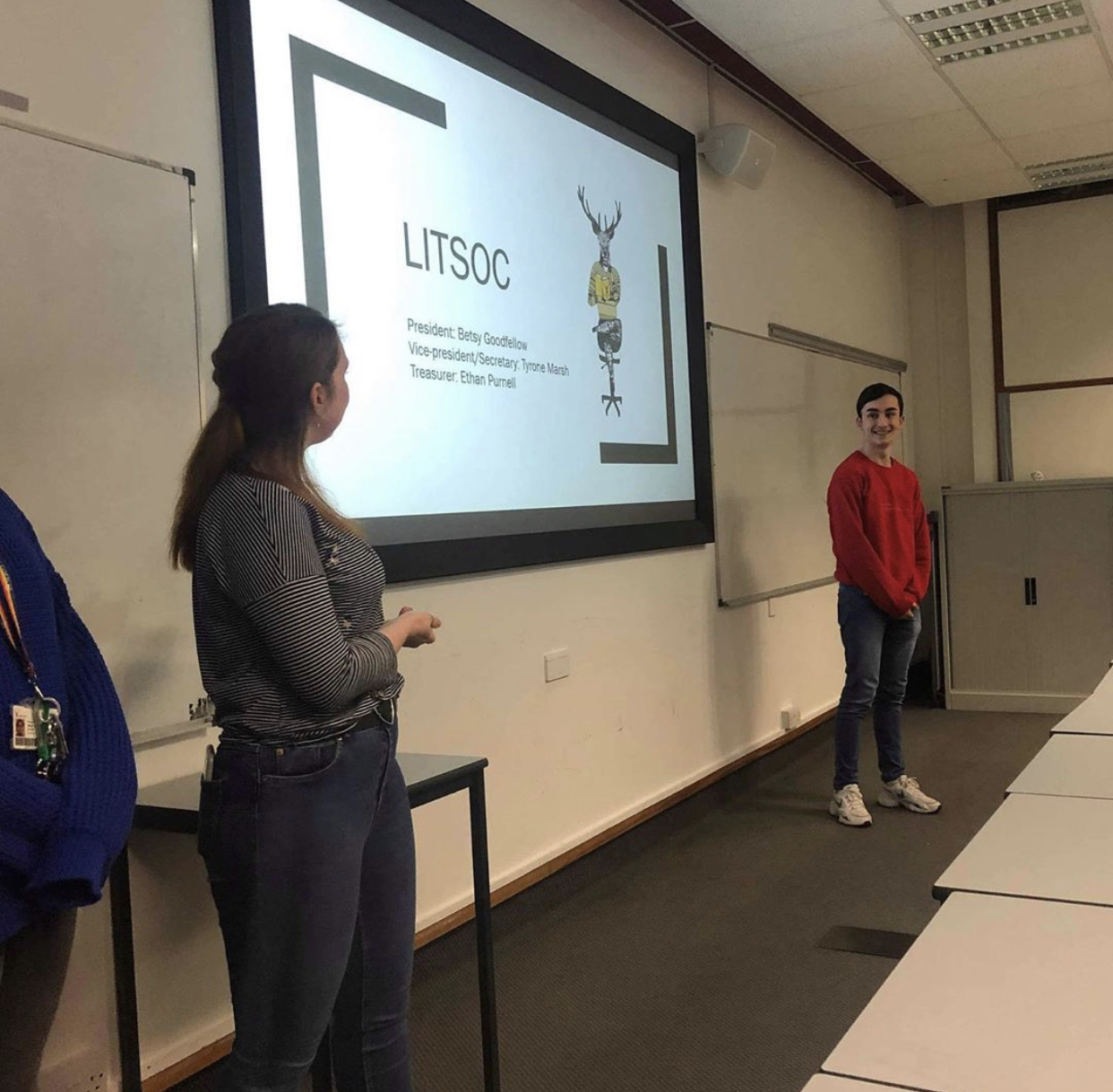This blog will take you a week into the world of an English Literature with Film Studies student, a world filled with reading, more reading, and a lot more reading. Regardless if you are studying the subject or not, there will be numerous tips which you could implement to your degree, many tips and tricks that helped me explore such a world with more fun and self-satisfaction.
Firstly, I want to emphasise that the way I approach English with Film may be different to somebody else’s approach. There is no clear-cut way of mastering such a world. However, it’s not the need to master the world (be the best at analysing a novel, a sequence of a film or get a 1st class essay), but rather what you individually learn from the paths you take.

Before the start of the week, I would look at my weekly to-do list and plan the number of things I have to do per module. For each module I have different things to do, for example, for ‘Monsters, Mystics & Demons’ in preparation for a seminar I usually have to translate a 50-line passage written in Middle English whereas for ‘World Cinema After WWII’ there is a particular film needed to be watched along with essential reading. All modules can be seen as jungles filled with vines that have to be cut through, with vines representing things to do. It’s not physically possible to cut through two vines at the same time, therefore I treat them separately according to particular factors.
For the English modules, there is always a particular text that we focus on during the week. This is the most important factor, the hardest vine I have to cut through per week. As English students, we are expected to read a novel a week per module, which is quite intimidating. Once I grab hold of the novel, be it physically bought online, through the library, or a free pdf found on the internet, I immediately start reading. The best way to get through novels, or texts requiring a large amount of reading, is to do exactly this: divide the number of chapters or pages by the number of days you wish to finish the book in, preferably 6 days (so you could relax and binge Netflix on the Sunday). Face it, unless you’ve left the novel for the last minute, it’s quite tiring to read an entire novel in the space of a day. Therefore, instead of cutting the vine (i.e. read the novel) in 24 hours, revisit the vine once a day in the space of a week. Audiobooks motivate me to get through novels, with online summaries and analyses ensuring that I understand every chapter being read!
I tend to dedicate Sundays to Film Studies, tucking myself in bed with a warm cup of tea and watching the set film of the week. Before watching the film, however, I do some background reading to better understand the spectacle that I am to immerse myself in, often using Wikipedia and also highlighting the essential reading, often an academic essay, subsequently doing notes.
Now it’s time to properly enter the jungle. Unlike last academic year, where the jungle aka the abyss that is Stag Hill Campus, was adventured in person, now, the jungle is adventured through my iPad Screen and SurreyLearn, with in-person seminars on Thursdays and Fridays. Having previously cut through the tough vines of reading novels and watching films, it is now time to go through pre-recorded lectures. All my lectures are often uploaded on Mondays, which I call ‘Lecture Day’. On Lecture Day I tend to go through 2 lectures, writing notes in the process. Following the lectures, after a long tea break, I work through Discussion Forum Questions in preparation for the following day’s online seminars.

I would like to stress the importance of breaks. Never overwork yourself. Your brain needs time to de-stress and absorb up all the information you have come across. I go to the gym often to escape from the jungle and life in general, regaining the stamina required to adventure through the rest of the week. Escape can be done in other ways, such as through meditation, hanging out with friends, or joining a club or a society. As the Vice-President of LitSoc, I have weekly meetings on Microsoft Teams, often done on Wednesdays. Becoming a committee member was one of the best choices I have made at university, with the experience of being a signatory reinforcing numerous skills such as leadership and adaptability (especially amidst a pandemic!). Do keep an eye out for an article based on becoming a committee member, written by me!
Back to the jungle. After going through the vines of reading, watching lectures, and note-taking, I am left with the final vines of the week: seminars. These, for me, take place on Tuesdays, Thursdays, and Fridays, with the ones on Tuesdays being done online via Zoom. I find seminars the most exciting part of the week due to group discussions on particular novels or films. My number one tip for seminars can be encapsulated in one word: preparation. The best way to tackle a vine is to prepare beforehand. Wake up half-an-hour or an hour to your usual waking time and re-read your lecture notes, ensuring that you have done any seminar preparation that may have been set. This helped me extremely when it came to group discussion, and will help rid any awkward silence that often takes place during seminars.
Finally! It’s the end of the week. However, as with any degree, there are many more weeks and more vines to go through. Some vines may be more challenging to get through than others, but regardless of that, it’s what you get out of it. My experience at university, through the world of English Literature with Film Studies, thus far, has helped me in many ways and will help you in one way or another. It’s just a matter of finding your way through your world and looking forward to what’s on the other-side.
